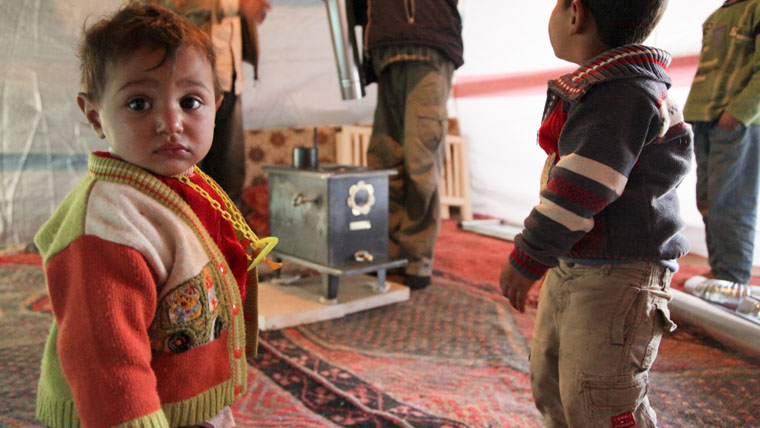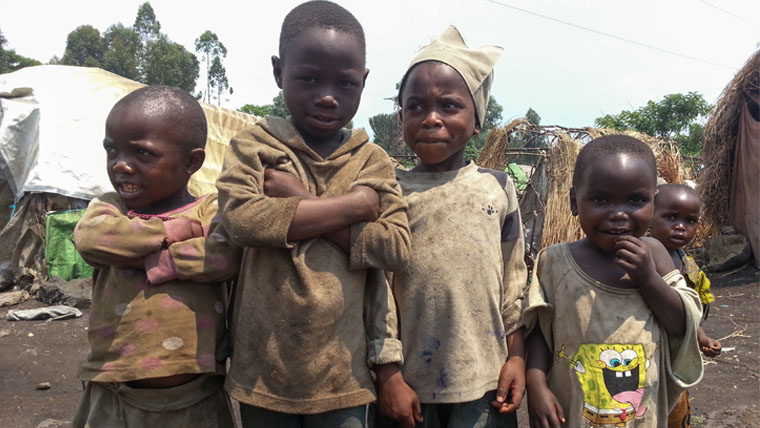Middle East reflections
Justin, our CEO has just recently returned from his trip to the Middle East.
In his last blog, he reflects on his time in the Middle East and the complexities of the region’s relationships, which are all too often under intense pressure. You can read his first blog from Beirut here and his post about the generosity of the Lebanese people here.

By Justin Byworth, CEO, World Vision UK
Nicosia, Cyprus, 30th November
It’s been a fascinating week immersed in the complexity of the Middle East. One that illustrates vividly the heartache and the joy of working with World Vision. As the United Nations General Assembly voted to give observer status to Palestine, I was meeting with a group of extraordinary Palestinian children full of potential and a passion for peace, yet seeing traumatic pictures drawn by the children of Gaza at World Vision’s child friendly spaces there. My mind is drawn back to the Syrian refugees I met in Lebanon, knowing that tonight, as conflict flares again in Damascus, more will be on the move. I also think of the Palestinian refugees I met in the tangled web of wires that run through the 60 year old crowded Beirut camp they call home.
The lives of children we work with in the Middle East are blighted more by injustice than by poverty. Injustice that in turn is causing poverty and suffering. The complex history, demographics, politics and religious mix of the Middle East intensifies everything from the day to day lives of millions to the regional and international geopolitics. Like turning the heat up to full in an oven, like a pressure cooker. Muslims – Shiites, Sunni and Druze. Christians – Orthodox, Catholics, Maronites, Protestants. Jews gathered from across the world in land that’s holy for Jew, Christian and Muslim alike. Armenians scattered throughout the region by genocide a century ago. Lebanon’s many different groups finely balanced and living with the painful memories of the 1975-90 war that they want to avoid again at all costs. Syria’s opposition fighting the Bashir government, yet itself fragmented and troubled. Generations of Palestinians hungry for a homeland. Israelis striving for security ever since their nation was born with British and international support after the horrific genocide of Jews in the Second World War.
My eldest daughter Caitlin is training to be a history teacher. I love hearing her passion for the subject and its relevance to children and our society today. I recall her quoting to me that “the greatest lesson from history is that we don’t learn from history”.
This truth is writ large through the Middle East.
Yet in the midst of this the voices of children I met during the last week resonate so clearly and simply. Perhaps they hold the key to a future that is different from the history: “Why should we children bear the responsibility for the mistakes of adults? We want peace.” “We want schools with safe playgrounds, without violence in the classroom.” “How can we speak about peace when children are being killed?” “Please listen to us, listen to us, listen to us.” So spoke Anood, Ghada and Ahmed. They then told me and World Vision colleagues from across Europe and the Middle East. “We want to encourage you not to give up. We want to be a part of this – we have ideas, energy and love. We are smarter and quicker to learn than you. When you want to do something for children, please do it with children. Nothing is impossible if we work together hand in hand”.
Then we prayed together, Christian and Muslim, young and old, led by these children and united in their desire and our vision for a future where they can live life and live it to the full, just as we each want for our own children.
As I return to the UK, I’m reflecting not only on this fascinating week in the Middle East but on the last two weeks, of other people and places and of my own home and work in the UK. Last Monday typified the highs and lows. Hours spent meeting two wonderful World Vision supporters, thanking them and talking about the impact they’ve had on children’s lives across Africa and Asia. An evening spent with Caitlin in Nottingham. As I drove between these a message came in from my colleague Richard on the border of the Democratic Republic of Congo and Rwanda. The rebel militia were attacking the town of Goma and he was evacuating to safety with other World Vision staff. Thousands there, amongst the planet’s poorest people, also fled in terror from their homes. At the same time Israeli bombs and Palestinian rockets were flying into and out of Gaza – where World Vision staff were sheltering from the conflict, as were the 7,000 children we work with there.
The contrast between the situation in Gaza and Goma was a stark irony. The eyes of the world’s media are trained on Gaza but World Vision struggling to speak out about the impact on children as our humanitarian neutrality is so easily brought into question in this polarised political environment. Meanwhile our first hand witness accounts from Goma went unheeded by the media and the British public were largely unaware of the humanitarian crisis unfolding there, making the task of raising funds to respond so much harder.
Thank God for the ceasefire in Gaza, for Richard’s safe return to the UK and for efforts underway to stabilise the situation around Goma where World Vision and other agencies are now able to provide emergency relief.
I’m arriving home to a winter’s cold spell in the UK, to 18 shopping days before Christmas and to Advent. As we prepare to remember the birth of Jesus in the midst of conflict and occupation two millennia ago, let us remember and pray for the people of Syria, Gaza and the Congo. Let us each cherish our family, our home, our community and all that we have and so easily take for granted. Don’t let the headlong rush of work, shopping, eating and drinking anaesthetise us to the reality of what will be a very different Christmas for children sheltering or recovering from conflict in Goma, in Syria and Lebanon, in Gaza.

A remarkable, emotional story and humbling to read of the lives being forced upon so many people. Share your views on the World Vision Facebook page and let us know what you think.